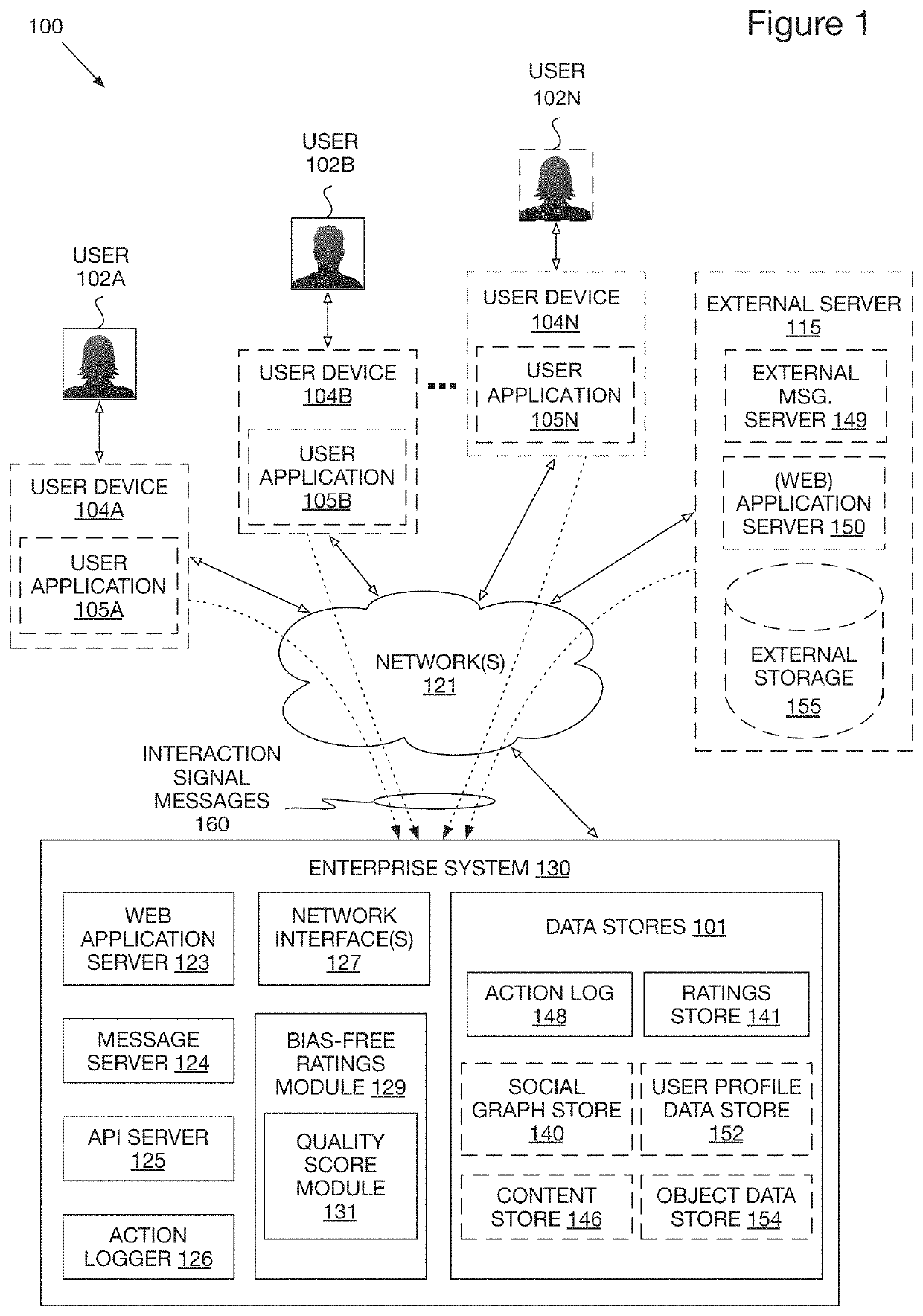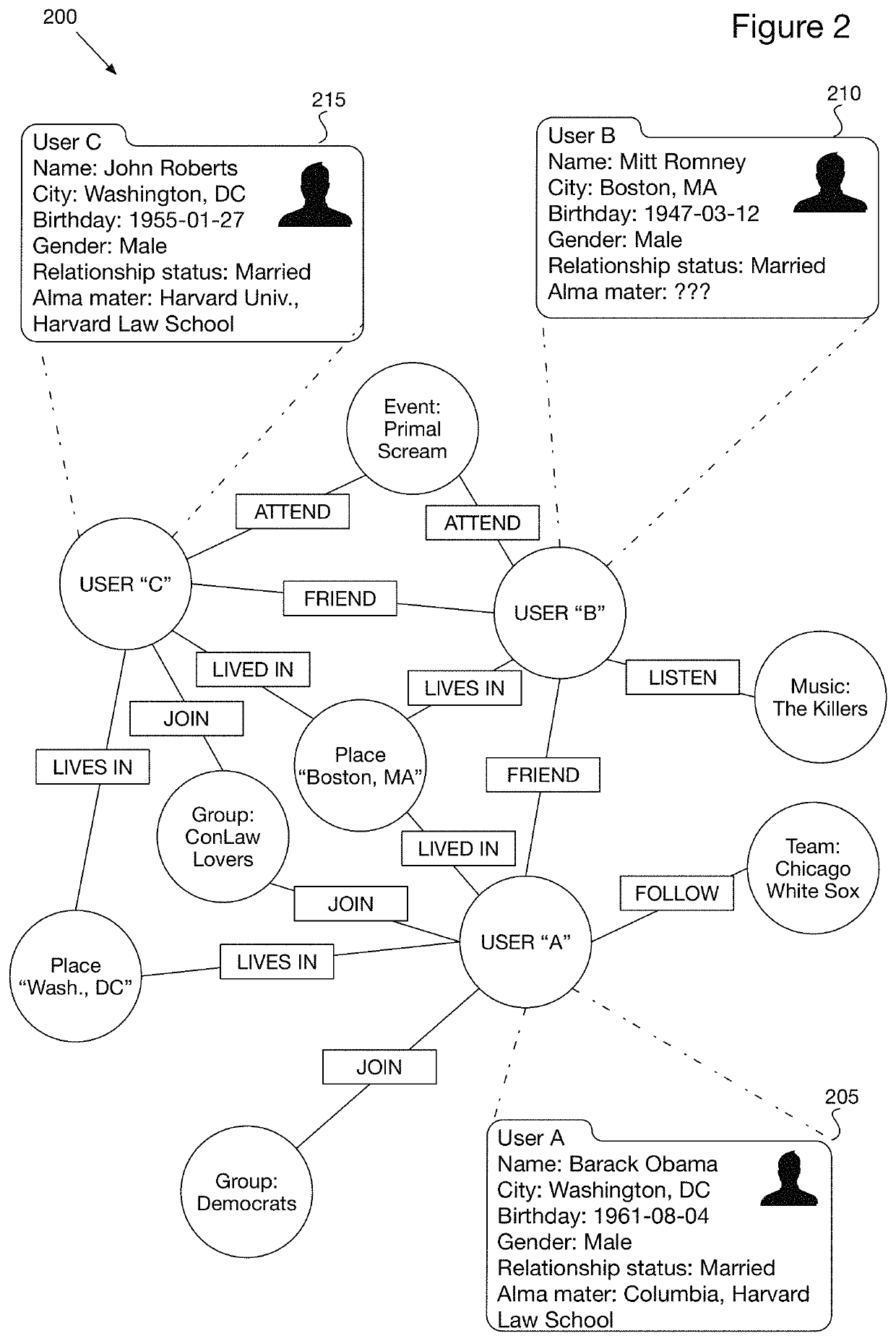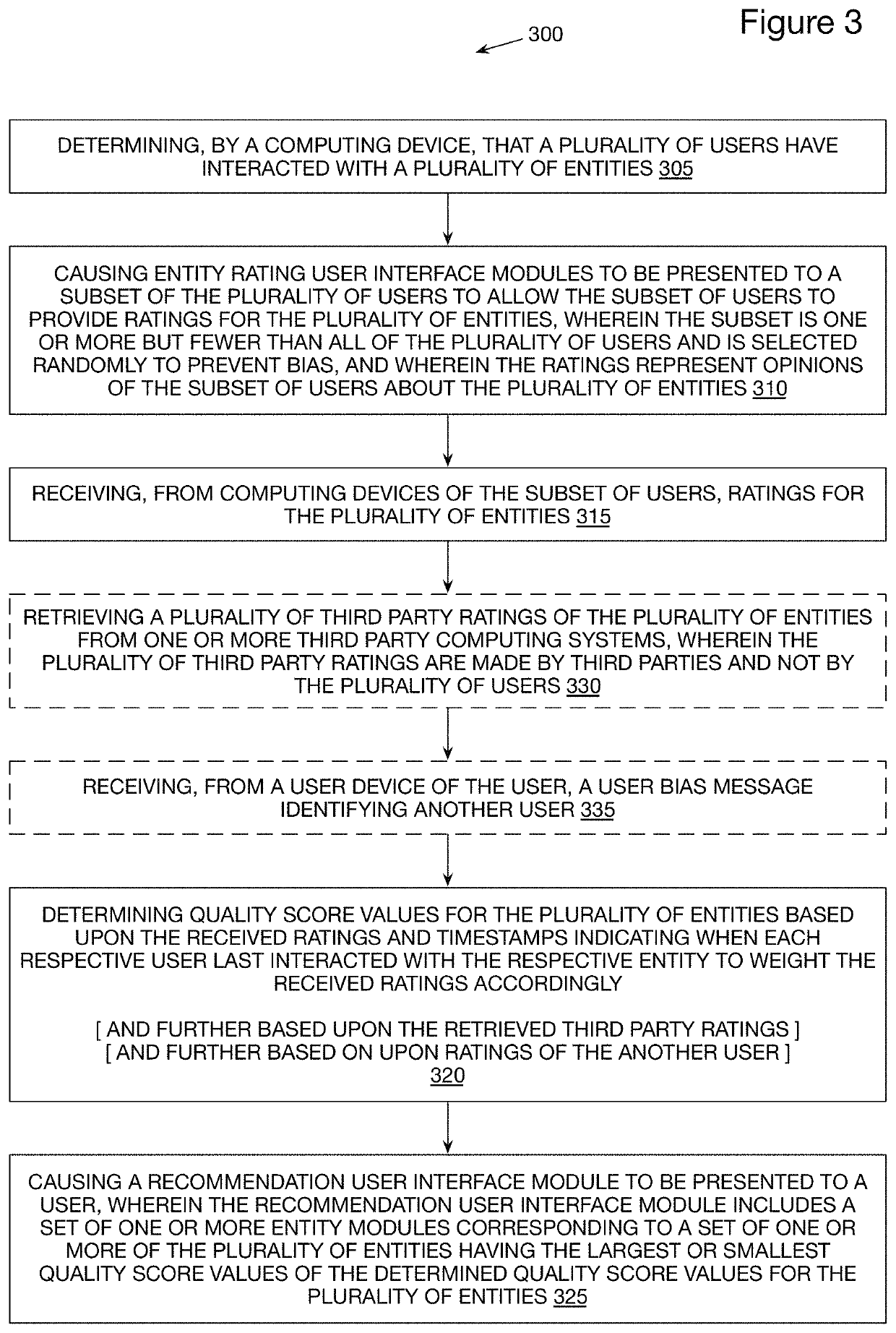Systems and methods for providing non-manipulable trusted recommendations
a technology of recommendations and trusted recommendations, applied in the field of recommendations systems, can solve the problems of fraudulent reviews, poor reviews, and significant degradation of the use of reviews, and achieve the effect of reducing bandwagon bias and preventing selection bias
- Summary
- Abstract
- Description
- Claims
- Application Information
AI Technical Summary
Benefits of technology
Problems solved by technology
Method used
Image
Examples
Embodiment Construction
[0016]As described above, computer applications (e.g., web applications) enabling user reviews and recommendations suffer from a variety of biases that result in the collected reviews and resulting recommendations made based upon those reviews being poor and / or untrustworthy. As a first flaw, these applications typically suffer from selection or sampling bias, wherein systematic error is introduced into the set of ratings because those users that submit reviews are not representative of the overall population of users of the application. Many of these applications also suffer from a confirmation bias or bandwagon effect, wherein users will often give an entity a similar rating as those ratings already submitted by other users for the entity. Moreover, these applications also typically suffer from heterogeneous entity reviews, as many “old” reviews for an entity in a first state may significantly overshadow a “small” number of recent reviews of the entity in its current state.
[0017]A...
PUM
 Login to View More
Login to View More Abstract
Description
Claims
Application Information
 Login to View More
Login to View More - R&D
- Intellectual Property
- Life Sciences
- Materials
- Tech Scout
- Unparalleled Data Quality
- Higher Quality Content
- 60% Fewer Hallucinations
Browse by: Latest US Patents, China's latest patents, Technical Efficacy Thesaurus, Application Domain, Technology Topic, Popular Technical Reports.
© 2025 PatSnap. All rights reserved.Legal|Privacy policy|Modern Slavery Act Transparency Statement|Sitemap|About US| Contact US: help@patsnap.com



